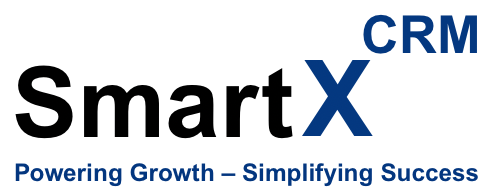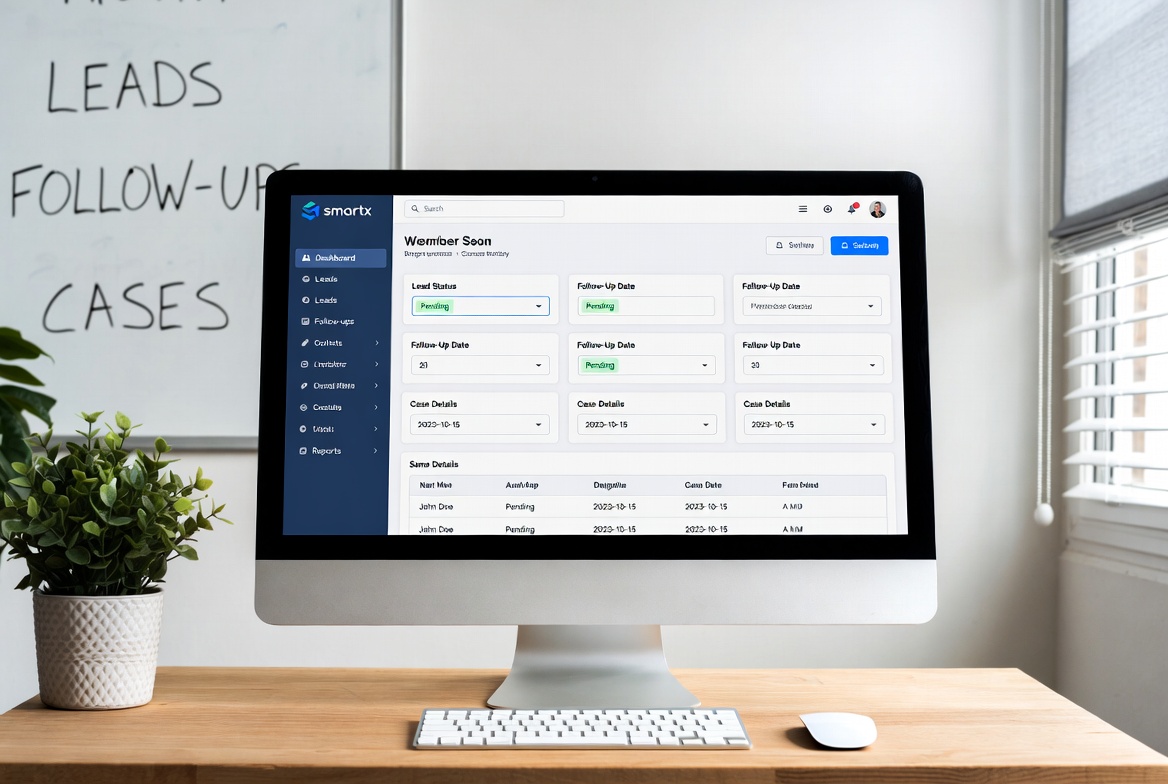In today’s rapidly evolving healthcare landscape, managing patient relationships effectively has become more critical than ever. Healthcare CRM software is transforming how medical practices, hospitals, and healthcare organizations interact with patients, streamline operations, and deliver exceptional care. This comprehensive guide explores everything you need to know about CRM software for healthcare in 2025, from essential features to implementation strategies.
What is Healthcare CRM?
Healthcare CRM (Customer Relationship Management) is specialized software designed to manage patient interactions, appointments, communications, and data throughout the entire patient journey. Unlike traditional CRM systems used in sales and marketing, healthcare CRM solutions are specifically tailored to meet the unique needs of medical practices, hospitals, clinics, and other healthcare providers.
A healthcare CRM system serves as a centralized platform that integrates patient data, appointment scheduling, communication tools, and care coordination features. It enables healthcare providers to build stronger patient relationships while maintaining compliance with healthcare regulations like HIPAA.
The evolution of healthcare CRM has accelerated significantly, with modern systems incorporating artificial intelligence, telehealth capabilities, and advanced automation features. These sophisticated platforms go beyond basic patient management to provide comprehensive solutions for lead generation and patient acquisition strategies.
Why Healthcare Needs CRM
The healthcare industry faces unique challenges that make CRM software for healthcare essential for modern medical practices. Patient expectations have risen dramatically, with consumers demanding personalized experiences similar to what they receive from other service industries.
Healthcare providers manage complex patient relationships that often span years or even decades. Traditional methods of patient management, such as spreadsheets or basic databases, are no longer sufficient to handle the volume and complexity of modern healthcare operations. Converting from Excel to a proper CRM system has become a necessity rather than a luxury.
Best healthcare CRM software addresses several critical needs:
Patient Retention and Engagement: Healthcare organizations need to maintain ongoing relationships with patients between visits, send preventive care reminders, and ensure continuity of care. A robust healthcare CRM enables providers to track patient preferences, medical history, and communication preferences to deliver personalized experiences.
Revenue Optimization: Healthcare practices face increasing financial pressures, making patient acquisition and retention more important than ever. CRM systems help identify opportunities for additional services, track referral sources, and optimize marketing efforts to attract new patients.
Operational Efficiency: Manual processes consume valuable time that could be spent on patient care. Healthcare CRM automates routine tasks like appointment reminders, follow-up communications, and data entry, allowing staff to focus on higher-value activities.
Compliance and Documentation: Healthcare organizations must maintain detailed records and comply with strict regulations. Modern CRM systems provide audit trails, secure data storage, and compliance reporting features that help organizations meet regulatory requirements.
Multi-Location Coordination: Many healthcare organizations operate multiple locations or departments. A centralized CRM system ensures consistent patient experiences across all touchpoints and enables seamless care coordination.
Core Features of Healthcare CRM
Understanding the essential features of healthcare CRM software is crucial for selecting the right solution for your organization. Modern systems offer comprehensive functionality designed specifically for healthcare environments.
Patient Management and Demographics: Advanced patient profiling goes beyond basic contact information to include comprehensive demographic data, insurance information, emergency contacts, and preferred communication methods. The system should maintain complete patient histories, including previous appointments, treatments, medications, and care plans.
Appointment Scheduling and Management: Sophisticated scheduling systems handle complex healthcare appointment requirements, including provider availability, room assignments, equipment needs, and appointment types. Features should include online booking capabilities, automated reminders via multiple channels (SMS, email, phone calls), and no-show tracking with automated follow-up protocols.
Communication Tools: Integrated communication platforms enable secure messaging between patients and providers, automated appointment confirmations and reminders, and patient portal access for self-service capabilities. The system should support multiple communication channels while maintaining HIPAA compliance.
Reporting and Analytics: Comprehensive reporting capabilities provide insights into patient satisfaction, appointment trends, revenue metrics, and operational efficiency. Advanced analytics help identify patterns in patient behavior, predict no-shows, and optimize resource allocation.
Integration Capabilities: Healthcare CRM systems must integrate seamlessly with existing healthcare infrastructure, including Electronic Health Records (EHR), practice management systems, billing software, and telehealth platforms. API connectivity ensures smooth data flow between systems without duplication or errors.
Mobile Accessibility: Healthcare professionals need access to patient information and CRM functionality from anywhere. Mobile applications should provide full CRM functionality, including patient lookup, appointment scheduling, and communication tools, while maintaining security standards.
Customization and Workflow Management: Healthcare organizations have unique processes and requirements. The CRM should offer customizable workflows, fields, and processes to match specific organizational needs without compromising core functionality.
Benefits for Patients & Providers
The implementation of best healthcare CRM software creates significant advantages for both healthcare providers and their patients, transforming the entire care delivery experience.
Patient Benefits:
Enhanced Communication: Patients benefit from improved communication through multiple channels, including secure patient portals, automated reminders, and personalized messaging. They receive timely information about appointments, preventive care opportunities, and follow-up instructions.
Convenient Access: Modern healthcare CRM systems provide patients with 24/7 access to appointment scheduling, medical records, and communication with their healthcare team. Online portals and mobile applications make it easier for patients to manage their healthcare needs on their own schedule.
Personalized Care: CRM systems enable healthcare providers to deliver more personalized experiences by tracking patient preferences, medical history, and communication styles. This leads to more effective treatments and improved patient satisfaction.
Reduced Wait Times: Efficient scheduling and resource management help minimize patient wait times and optimize appointment slots. Automated systems can also provide real-time updates about delays or schedule changes.
Provider Benefits:
Increased Efficiency: Healthcare providers experience significant time savings through automated processes, streamlined workflows, and reduced administrative tasks. Automation features eliminate repetitive manual work and allow staff to focus on patient care.
Improved Patient Retention: CRM systems help identify at-risk patients, track satisfaction levels, and implement targeted retention strategies. Providers can proactively address concerns before they lead to patient churn.
Enhanced Revenue: Better patient management leads to reduced no-shows, increased appointment bookings, and identification of additional service opportunities. Healthcare CRM systems also improve collections through better patient communication and payment tracking.
Data-Driven Decision Making: Comprehensive reporting and analytics provide insights that help healthcare providers make informed decisions about staffing, services, and resource allocation. Trend analysis helps identify opportunities for improvement and growth.
Regulatory Compliance: Healthcare CRM systems help maintain compliance with healthcare regulations through proper documentation, audit trails, and security measures. This reduces the risk of penalties and legal issues.
Challenges & Compliance Issues
Implementing healthcare CRM solutions presents unique challenges that healthcare organizations must address to ensure successful adoption and ongoing compliance.
HIPAA Compliance: The Health Insurance Portability and Accountability Act (HIPAA) sets strict requirements for protecting patient health information. Healthcare CRM systems must include robust security measures such as encryption, access controls, audit logging, and data backup procedures. Organizations must ensure that all CRM vendors sign Business Associate Agreements (BAAs) and maintain compliance certifications.
Data Security and Privacy: Healthcare organizations are prime targets for cyberattacks due to the valuable nature of patient data. CRM systems must implement multi-layered security approaches, including data encryption at rest and in transit, regular security assessments, multi-factor authentication, and staff training on data protection practices.
Integration Complexity: Healthcare organizations typically use multiple software systems, and integrating a new CRM can be technically challenging. Data mapping between systems, ensuring real-time synchronization, and maintaining data integrity across platforms require careful planning and technical expertise.
User Adoption: Healthcare professionals are often resistant to new technology, especially when they’re already dealing with complex EHR systems. Successful CRM implementation requires comprehensive training, change management strategies, and ongoing support to ensure staff adoption.
Cost Considerations: Healthcare CRM implementation involves significant upfront costs for software licenses, integration, training, and ongoing maintenance. Organizations must carefully evaluate the return on investment and budget for long-term operational costs.
Regulatory Changes: Healthcare regulations are constantly evolving, and CRM systems must be flexible enough to adapt to new requirements. Vendors should provide regular updates and maintain compliance with changing regulations.
Top CRM Software for Healthcare in 2025
The healthcare CRM market offers numerous solutions, each with unique strengths and specializations. Here are the leading healthcare CRM software options for 2025:
SmartX CRM – Healthcare Edition: SmartX CRM offers a comprehensive healthcare-focused solution with advanced lead generation capabilities and patient management features. The platform includes automated appointment reminders, patient portal integration, and HIPAA-compliant communication tools. SmartX CRM’s strength lies in its ability to combine traditional CRM functionality with healthcare-specific features, making it ideal for practices looking to grow their patient base while maintaining excellent care standards.
Salesforce Health Cloud: Salesforce’s healthcare-specific CRM platform offers robust integration capabilities and extensive customization options. The system provides comprehensive patient journey mapping, care team collaboration tools, and advanced analytics. Health Cloud excels in large healthcare organizations that need enterprise-level functionality and complex workflow management.
HubSpot for Healthcare: HubSpot’s healthcare solution combines powerful marketing automation with CRM functionality. The platform offers excellent patient engagement tools, content management capabilities, and lead nurturing features. HubSpot is particularly strong for healthcare organizations focused on digital marketing and patient acquisition.
Microsoft Dynamics 365 for Healthcare: Microsoft’s offering provides deep integration with other Microsoft products and comprehensive healthcare functionality. The system includes advanced analytics, AI-powered insights, and flexible customization options. Dynamics 365 works well for organizations already invested in the Microsoft ecosystem.
Pipedrive Healthcare: Pipedrive offers a user-friendly interface with healthcare-specific customizations. The platform focuses on simplicity and ease of use while maintaining essential healthcare functionality. Pipedrive is ideal for smaller practices that need powerful CRM capabilities without complexity.
Zoho CRM for Healthcare: Zoho provides an affordable solution with comprehensive healthcare features, including patient management, appointment scheduling, and communication tools. The platform offers good value for money and works well for small to medium-sized healthcare practices.
Each of these solutions offers unique advantages, and the best choice depends on your organization’s specific needs, size, budget, and technical requirements. Consider factors such as integration capabilities, user interface, training requirements, and long-term scalability when making your selection.
Implementation Best Practices
Successfully implementing CRM software for healthcare requires careful planning, stakeholder engagement, and a structured approach. Follow these best practices to ensure a smooth transition and maximize the value of your investment.
Pre-Implementation Planning: Begin with a comprehensive assessment of your current processes, identifying pain points and opportunities for improvement. Define clear objectives and success metrics for your CRM implementation. Engage key stakeholders early in the process, including physicians, nurses, administrative staff, and IT personnel.
Data Migration Strategy: Develop a detailed plan for migrating existing patient data to the new CRM system. This includes cleaning and standardizing data, mapping fields between systems, and establishing data validation procedures. Plan for a phased migration approach to minimize disruption to daily operations.
Training and Change Management: Invest heavily in comprehensive training programs that address different user roles and experience levels. Provide hands-on training sessions, create user documentation, and establish ongoing support resources. Implement change management strategies to address resistance and encourage adoption.
Phased Rollout Approach: Consider implementing the CRM system in phases, starting with core functionality and gradually adding advanced features. This approach allows staff to adapt gradually and helps identify and resolve issues before full deployment.
Compliance Verification: Ensure that all aspects of your CRM implementation meet healthcare compliance requirements. Conduct regular security assessments, verify HIPAA compliance, and establish proper data governance procedures.
Integration Testing: Thoroughly test all integrations between the CRM system and existing healthcare software. Verify data accuracy, test workflow processes, and ensure that all systems communicate effectively.
Ongoing Optimization: Continuously monitor system performance, user adoption, and business outcomes. Regular reviews help identify opportunities for optimization and ensure that the CRM system continues to meet evolving organizational needs.
The key to successful implementation lies in treating it as an organizational change initiative rather than just a technology project. Success requires commitment from leadership, comprehensive training, and ongoing support for users.
Future of CRM in Healthcare (AI, Telehealth, Automation)
The future of healthcare CRM solutions is being shaped by emerging technologies that promise to further transform patient care and operational efficiency. Understanding these trends helps healthcare organizations prepare for the next generation of CRM capabilities.
Artificial Intelligence Integration: AI is revolutionizing healthcare CRM through predictive analytics, automated patient outreach, and intelligent scheduling optimization. Machine learning algorithms can analyze patient data to predict no-shows, identify patients at risk of non-compliance, and suggest personalized treatment recommendations. Natural language processing enables automated documentation and improves the accuracy of patient communication.
Advanced Automation: The next generation of healthcare CRM systems will feature sophisticated automation capabilities that go beyond basic appointment reminders. Intelligent workflows will automatically trigger follow-up care protocols, identify revenue opportunities, and optimize resource allocation based on patient needs and provider availability.
Telehealth Integration: The COVID-19 pandemic accelerated telehealth adoption, and this trend continues to grow. Future healthcare CRM systems will seamlessly integrate virtual care capabilities, enabling providers to manage both in-person and remote patient interactions from a single platform. This integration will include virtual waiting rooms, remote monitoring capabilities, and automated telehealth appointment scheduling.
IoT and Remote Monitoring: Internet of Things (IoT) devices and remote monitoring tools will feed real-time patient data directly into CRM systems. This integration will enable proactive care management, early intervention capabilities, and more comprehensive patient monitoring between appointments.
Voice Technology: Voice assistants and speech recognition technology will make healthcare CRM systems more accessible and efficient. Providers will be able to update patient records, schedule appointments, and access information using voice commands, reducing the time spent on administrative tasks.
Blockchain for Data Security: Blockchain technology may revolutionize healthcare data security and interoperability. Future CRM systems could use blockchain to create secure, tamper-proof patient records that can be safely shared between healthcare providers while maintaining patient privacy.
Predictive Analytics: Advanced analytics will help healthcare organizations predict patient needs, identify potential health risks, and optimize treatment protocols. CRM systems will use historical data and real-time information to provide actionable insights that improve patient outcomes and operational efficiency.
These technological advances will create more intelligent, efficient, and patient-centered healthcare CRM systems that support better outcomes for both providers and patients.
Case Studies/Examples
Real-world implementations of best healthcare CRM software demonstrate the tangible benefits that organizations can achieve. These case studies illustrate how different healthcare providers have successfully leveraged CRM technology to improve operations and patient care.
Case Study 1: Regional Medical Center – 40% Reduction in No-Shows
A 200-bed regional medical center implemented a comprehensive healthcare CRM system to address high no-show rates and improve patient communication. The organization was experiencing a 25% no-show rate across all departments, leading to significant revenue loss and scheduling inefficiencies.
The CRM implementation included automated appointment reminders via multiple channels, patient preference tracking, and predictive analytics to identify at-risk appointments. Within six months, the medical center achieved a 40% reduction in no-show rates, translating to increased revenue of $1.2 million annually.
The system also improved patient satisfaction scores by 35% through better communication and more convenient scheduling options. Staff productivity increased as administrative tasks were automated, allowing more time for patient care activities.
Case Study 2: Specialty Cardiology Practice – 60% Increase in Patient Referrals
A multi-location cardiology practice used healthcare CRM to improve referral management and patient follow-up processes. The practice was struggling to track referral sources and maintain relationships with referring physicians.
The CRM system automated referral acknowledgments, provided detailed reporting on referral patterns, and enabled personalized communication with referring physicians. The practice implemented automated follow-up processes and targeted marketing campaigns based on CRM data.
Results included a 60% increase in patient referrals within one year, improved relationships with referring physicians, and better patient retention through enhanced follow-up care protocols. The practice also identified new revenue opportunities through data-driven analysis of patient needs and preferences.
Case Study 3: Primary Care Network – Streamlined Multi-Location Operations
A primary care network with 15 locations implemented a centralized healthcare CRM system to standardize processes and improve coordination between locations. The organization faced challenges with inconsistent patient experiences and fragmented data management.
The CRM solution provided unified patient records across all locations, standardized appointment scheduling processes, and centralized communication management. Advanced reporting capabilities enabled network-wide performance monitoring and resource optimization.
The implementation resulted in improved operational efficiency, consistent patient experiences across all locations, and better resource utilization. Patient satisfaction scores increased by 28%, and administrative costs were reduced by 20% through streamlined processes and reduced duplicate efforts.
These case studies demonstrate that successful healthcare CRM implementation requires careful planning, comprehensive training, and ongoing optimization. Organizations that invest in proper implementation strategies achieve significant returns on investment through improved efficiency, patient satisfaction, and revenue growth.
Making the Right Choice for Your Healthcare Organization
Selecting the right CRM software for healthcare requires careful evaluation of your organization’s specific needs, budget constraints, and long-term goals. Consider factors such as practice size, specialty requirements, existing technology infrastructure, and compliance needs.
SmartX CRM stands out as a comprehensive solution that combines powerful CRM functionality with healthcare-specific features. The platform offers advanced lead management capabilities, automated workflow tools, and HIPAA-compliant communication features designed specifically for healthcare organizations.
Whether you’re a small private practice or a large healthcare system, the right CRM solution can transform your patient relationships, streamline operations, and drive sustainable growth. The key is choosing a system that aligns with your organizational goals and provides the flexibility to evolve with your changing needs.
Get Started with Healthcare CRM Today
Ready to transform your healthcare practice with powerful CRM technology? SmartX CRM offers a comprehensive healthcare solution designed to meet the unique needs of medical practices, hospitals, and healthcare organizations.
Schedule a personalized demo to see how SmartX CRM can help you:
- Reduce no-show rates and improve patient engagement
- Streamline appointment scheduling and communication
- Ensure HIPAA compliance and data security
- Increase operational efficiency and revenue
- Enhance patient satisfaction and retention
Get Your Free Demo Today and discover why healthcare organizations nationwide trust SmartX CRM to manage their patient relationships and drive practice growth.
Don’t let outdated systems hold back your healthcare practice. Join the digital transformation and start delivering exceptional patient experiences with the power of modern healthcare CRM technology./isolated-segment.html





Leave a comment: